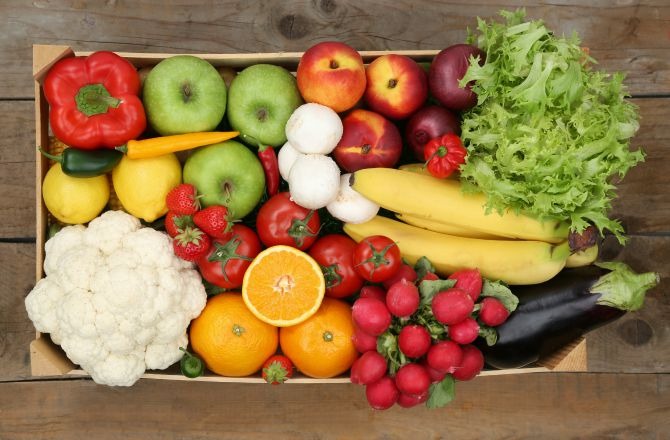Don't Waste Money: These Are The Only Foods You Should Buy Organic
Due to increased customer interest in healthful and sustainable eating, many grocery stores are stocking up on organic produce, meats, eggs, dairy, and other products. Organic foods may look more appealing and even sound better for you, but the minute you see the price difference, conventional products tend to look just as attractive.
Click here for 7 Reasons Organic Food is so Expensive slideshow.
Why does "organic" sound healthier and more alluring? It turns out that 40 percent of consumers think organic food is more nutritious than conventional food, according to a study published in the International Food and Agribusiness Management Review. In order for something to be labeled organic, it must follow the list of standards created by the USDA. This prohibits a producer from using synthetic pesticides, chemical fertilizers, genetically modified organisms (GMO), growth hormones, or antibiotics.
In terms of nutrient content, there is no significant difference between organic and conventional produce. However, with some fruits and vegetables, it is important to consider the impact of pesticides, food additives, and environment.
If you do not have the ability to buy all organic produce, there is definitely a solution. The Environmental Working Group (EWG) has created a list of Dirty Dozen PLUS and Clean Fifteen fruits and vegetables to inform the consumer on which foods are better to buy organic — and which of their conventional counterparts are fine to eat.
The Dirty Dozen PLUS is comprised of 15 fruits and vegetables that should only be bought organic: apples, celery, cherry tomatoes, collard greens, cucumbers, grapes, hot peppers, kale, nectarines, peaches, potatoes, snap peas, spinach, strawberries, and sweet bell peppers. The EWG's key findings with the Dirty Dozen PLUS found that 99 percent of apple samples, 98 percent of peaches, and 97 percent of nectarines tested positive for at least one pesticide residue. In addition, a single grape sample and a sweet bell pepper sample contained 15 pesticides, and single samples of cherry tomatoes, nectarines, peaches, imported snap peas, and strawberries showed 13 different pesticides a piece.
Although the list may seem daunting, there are still fifteen fruits and vegetables that can be bought conventional: asparagus, avocados, cabbage, cantaloupe, cauliflower, eggplant, grapefruit, kiwi, mangos, papayas, onions, pineapples, sweet corn, sweet peas (frozen), and sweet potatoes. So, how "clean" are these? According to the EWG, no single fruit sample from the Clean Fifteen tested positive for more than four types of pesticides, and out of all of the foods, avocados were the cleanest. With that in mind, you can save money and steer clear of health problems.
